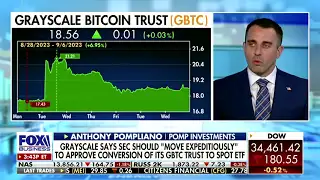The three-day Messari Mainnet conference in New York last week was a more sober affair than previous years, with fewer Reddit bros and yacht parties, and more suits and talk of regulation.
But that’s not necessarily a bad thing.
The crypto industry is growing up, and the grown-ups are taking the lead.

This was evident in the focus of the conference, which shifted away from speculative bets and NFTs, and towards regulation, policy, and building practical tools.
“There is less of the hype, speculation, costumes, and boat parties, and more serious discussion about opening up real-world assets like private equity, private credit, fixed income, and other alternatives to investors for the first time,” said Carlos Domingo, CEO of Securitize.
The focus on regulation is particularly important, as the SEC has been cracking down on crypto companies in recent months.
We need a clear policy framework so people can innovate,” said Coinbase’s Jesse Pollak. “Innovators are moving outside the US, moving to regions that are being more proactive from a policy perspective.”
Despite the challenges, the crypto industry is still moving forward.
The thing that will encourage skeptics is crypto as a technology, and moving away from crypto as an asset and speculation,” said Pollak. “We’re moving more toward how crypto is helping small businesses, restaurants, advocacy groups. Those use-cases are what move the needle for everyday people, not another get-rich-quick scheme.”
The notion of “invisible technology” kept coming up in conversations at Messari. Crypto applications, the idea goes, will gain mainstream adoption once people use it without realizing it.
“There’s less gimmicky things, which is reflective of the maturity of the industry,” said Jess Houlgrave, COO of WalletConnect. “The business-to-business focus we’re in right now is here to stay, since crypto won’t be consumer-facing anyway. Eventually, consumers will be interacting with blockchain everyday but they just won’t know it.”
Crypto’s biggest obstacle now, attendees said, has nothing to do with price action or investing in the next winning project, but figuring out how to keep innovating under the eye of increasingly tough US regulators.
The crypto industry is growing up, and the growing pains are real. But the future is still bright.











Discussion about this post